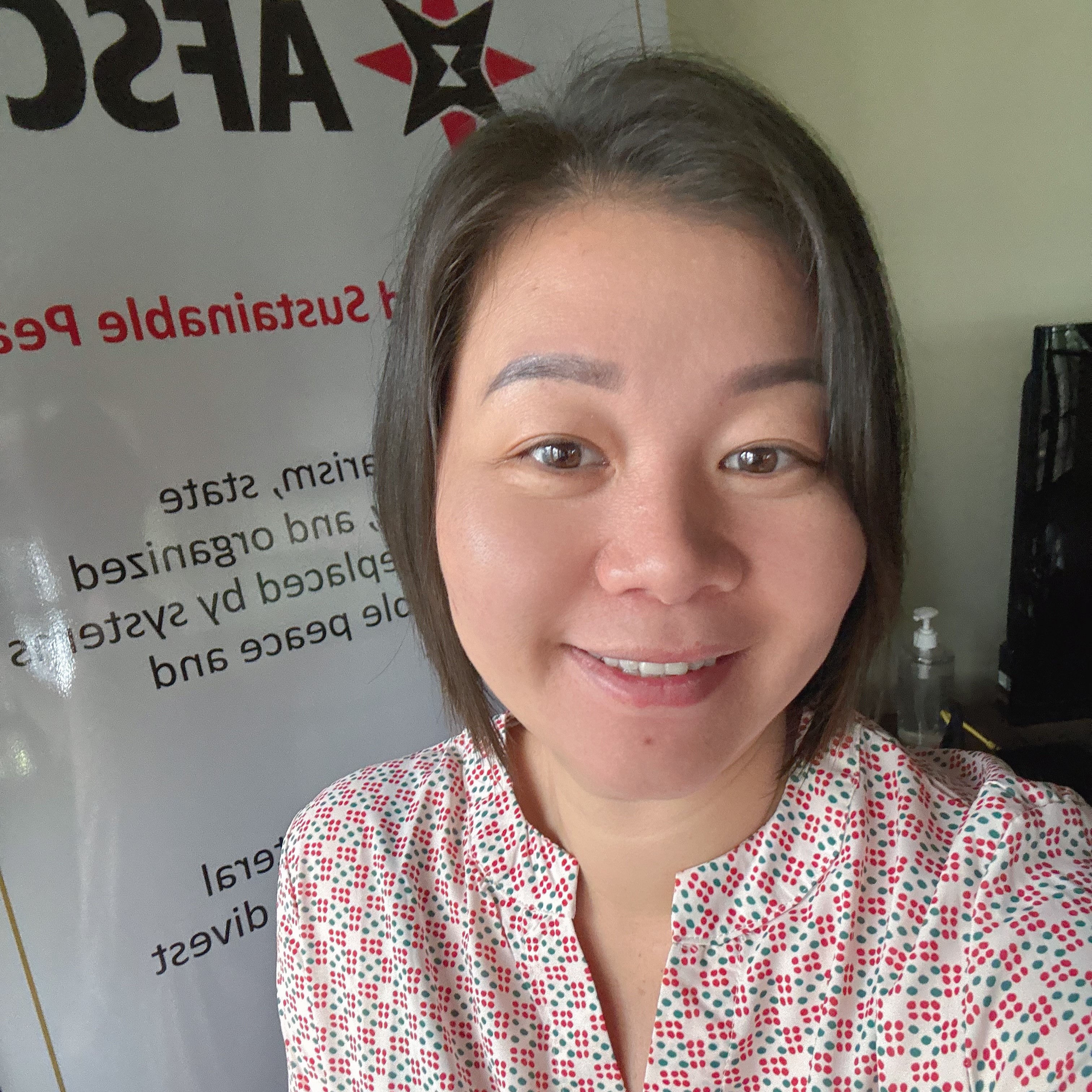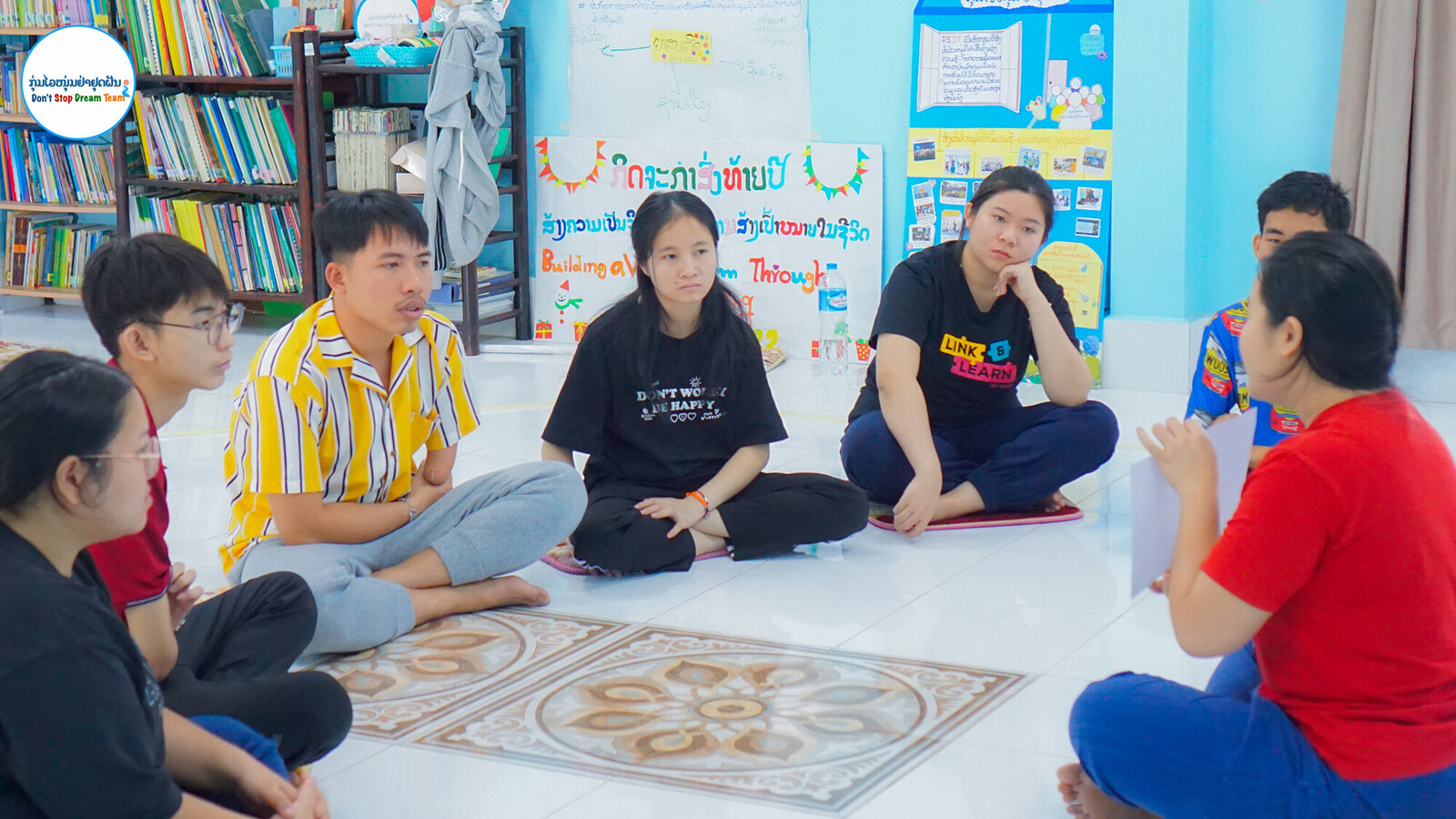
A gathering of Asia Youth for Action members. AFSC/Asia
Across Southeast Asia, young people are working for peace and justice, despite being traditionally excluded from decision-making in their countries. AFSC’s Asia Young People for Action (AYA) initiative is supporting these young leaders in their efforts—creating a space where youth can find their voice, enhance their skills, and effect meaningful change in their communities.
With support from AFSC, members of AYA are making a difference in many ways. In Cambodia, they are speaking out against gender-based violence. In Lao People's Democratic Republic (PDR), they’re creating safe spaces for people to come together to address the impacts of climate change. And in Indonesia, they are improving accessibility for people with disabilities.
Through hands-on workshops, cross-border collaborations, and community-based projects, AYA helps young people grow as leaders. They are taking action to address the root causes of conflict and injustice while building bridges across cultural and national boundaries.
Meet three of AYA’s members:
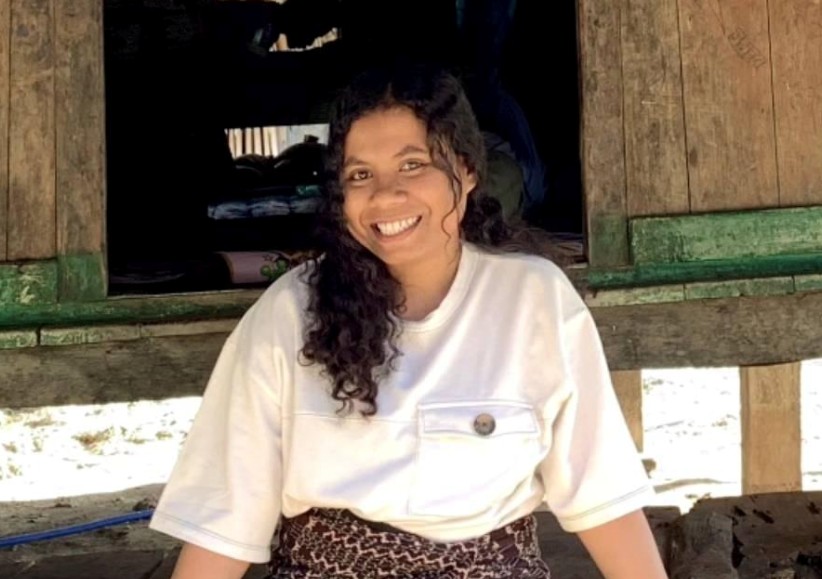
AFSC/Asia
Rika: Advocating for accessibility for deaf people
Rika Hanadii is a young pastor who is leading a movement for accessibility for deaf communities in Kupang, Indonesia. After meeting young leaders with disabilities at an AFSC gathering in Cambodia, she was inspired to start a project to help address the barriers facing deaf people in her own community.
With support from AYA, Rika launched the Grounding Sign Language initiative in 2023 to improve access for deaf people in public services, legal aid, and religious institutions. She reached out to government offices, health agencies, police departments, and local churches, finding positive responses across sectors.
As part of the project, Rika coordinated a 10-day sign language training program, which was attended by government officials, community leaders, and young activists. The sessions covered essential sign language vocabulary, communication strategies, and real-life scenarios to help participants integrate sign language into daily interactions.
These efforts made a difference. A community health center in Oebobo agreed to train its staff in sign language, while the Kupang City Health Office publicly recognized the importance of sign language interpreters in medical settings. Local churches also began incorporating sign language into their services.
“AYA has helped me gain real experience about the context pastors must understand,” says Rika. “Churches serve diverse congregations, they must be open to inclusivity. This experience has been invaluable in shaping me into a pastor who must be active and innovative.”
Today, Rika and her team are continuing their work through additional trainings, policy advocacy, and community engagement. Their goal is to create a sustainable model in which sign language training becomes an integral part of public service institutions.
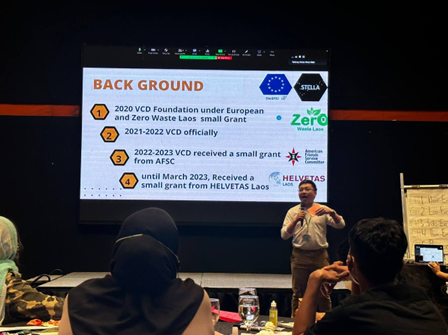
AFSC/Asia
Vanhthong: Mobilizing for climate justice
In Lao PDR, Vanhthong Thorkhoualoua is committed to bringing people together for climate action. He is a co-founder of the Volunteer for Community Development group, which works to address climate challenges in the Viengxay district, Houaphanh province.
As in many Southeast Asian countries, climate change has hit Laos hard—affecting farming, livelihoods, and the fabric of rural communities. Through AYA, Vanhthong has connected with other young leaders from Lao PDR, Indonesia, Myanmar, and Cambodia who also care about climate justice and peace.
Listening to communities most affected by climate change is key to finding solutions, Vanhthong says. Since 2021, he has run training workshops for over 300 people and now works with more than 40 organizations to ensure more people can make their voices heard.
With a small grant from AYA, Vanhthong started the Young Leaders in Environmental Action project. The program has trained and mentored young people in dealing with environmental disasters—working toward the U.N.'s goals for climate action and peaceful societies.
“We want to help youth be brave, take responsibility for the environment, and think about sustainable development,” says Vanhthong. “Fighting global warming is the duty of all of us, especially young people who will inherit the future.”
These efforts are making a difference. “City leaders are now listening to young people's ideas,” he says. “We're seeing the results of our work over the years. And we keep on training more youth.”
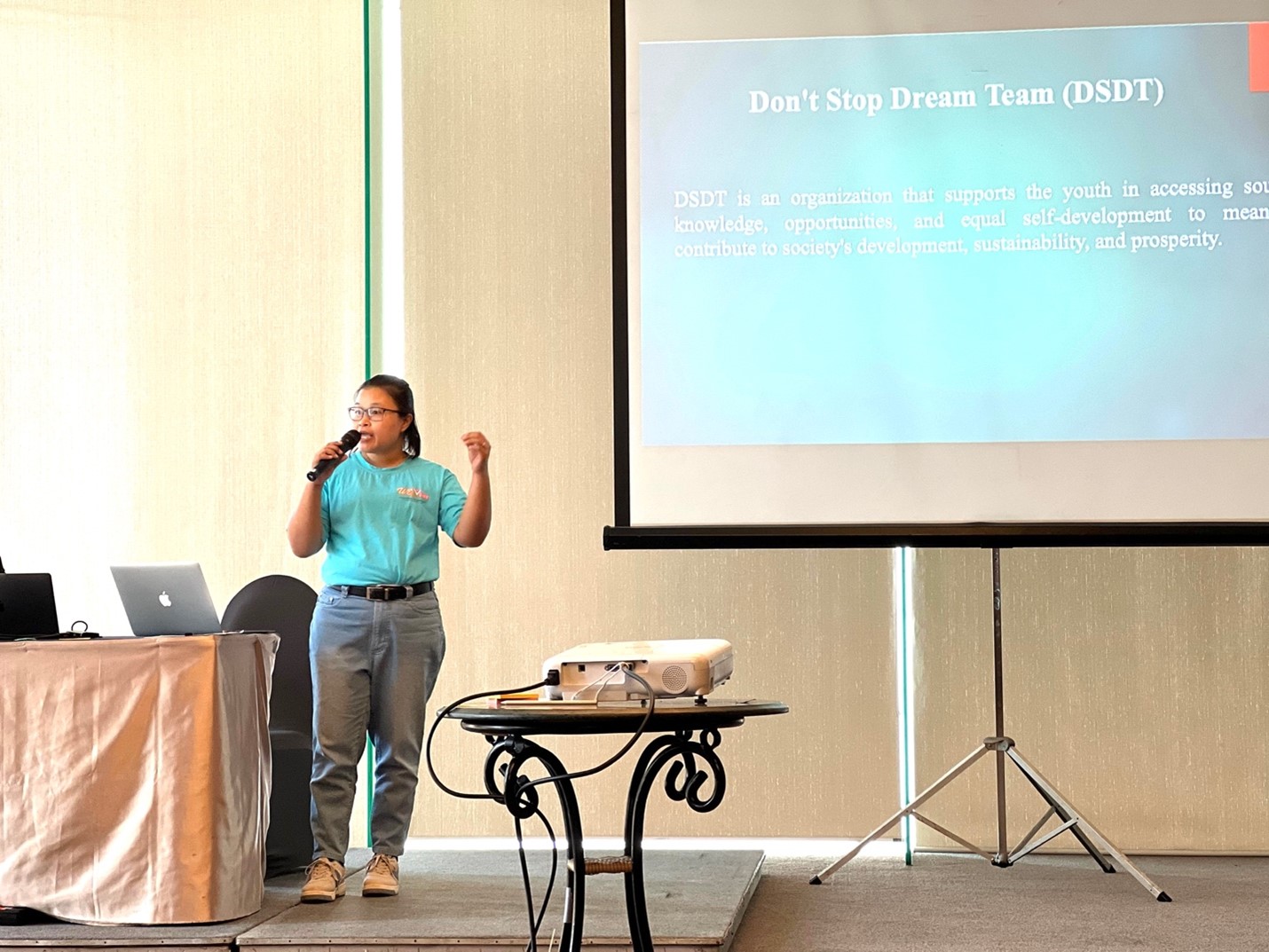
AFSC/Asia
Vanna: Using art to create change
Vanna Chomsavanh has spent nine years helping young people, especially young women, in Lao PDR become community leaders. She is the co-founder of the Don't Stop Dream Team (DSDT), an organization focused on building life skills and leadership among young people across the country. And she is passionate about supporting youth efforts to address social problems, especially in areas with few opportunities.
“We need to create safe spaces for youth who might turn to drugs,” Vanna explains. “When young people come together to share ideas and support each other, it helps reduce stress.”
With a small grant from AYA in 2023, Vanna started a new project, Building Community Advocates Through Forum Theatre. The project gave young people in the districts of Hadxaifong and Saysettha a platform to express themselves and become agents of change. Through the project, 15 young volunteers honed vital skills, including communication and teamwork. They then applied what they learned as community advocates, holding public performances to raise awareness about issues such as drug use and safe labor migration.
The 15 trained youth performed in five villages, reaching 280 people in schools and communities. They also created two short drama videos that they shared on YouTube. Today, many participants continue to lead community activities.
Through AYA, young people are reimagining what’s possible, building their confidence, and developing skills to make a difference. These young leaders aren’t just changing their own communities—they are also inspiring others across the region in working for justice, healing, and a better future for all.
